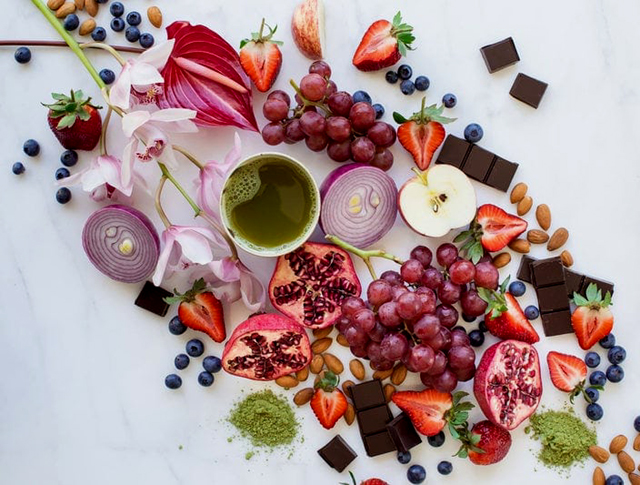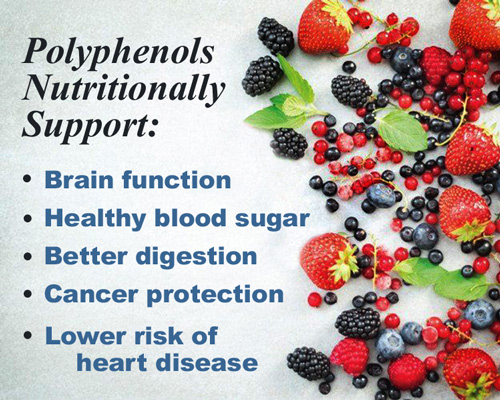In a first-of-a-kind study, researchers have determined that a single dose of polyphenols can improve cognitive function.
The research was published in the European Journal of Nutrition in August 2020. The study was conducted by researchers from the Illinois Institute of Technology, the University of Cincinnati and the University of Reading in the UK.
Polyphenols are a type of nutrient that are found naturally in all plant-based foods. These compounds are extremely high in antioxidants and offer a wide range of potential health benefits.
There are four main categories of polyphenols: Flavonoids, lignans, stilbenes and phenolic acids.
Most people receive the bulk of their polyphenols via fruits and berries—and to a lesser extent, vegetables. Unfortunately these are the very foods that are lacking in the typical diet; instead, most people rely heavily on processed foods.
The highest saturations of polyphenols are actually found in herbs such as cloves, peppermint, star anise, cumin and ginger. Adding these to the diet (or supplementing with a quality antioxidant product) can dramatically boost polyphenol intake.
In the study just published the polyphenol source was freeze-dried wild blueberry powder.
Study details
Previous research demonstrated that berries in general—and blueberries in particular—enhance cognitive performance in young people and the elderly.
The new study was designed to specifically explore whether one-time use of wild blueberry powder could enhance cognitive performance in middle-aged adults.
The study was a randomised, double-blind, placebo-controlled, crossover-design trial.
“Double-blind trial” means that each time a participant took a dose, they were unaware of whether they received a real does or a placebo. The researchers were also unaware.
All participants received both the placebo and the blueberry powder at different times. Half received the placebo first and the other half the blueberry powder.
The participants were then given the other intervention on their next visit during another day. This is called a “crossover-design.”
The 35 participants that finished the study were between 40 and 65 years old.
Measuring improvement
The cognitive performance of the participants was measured two, four, six, and eight hours following the ingestion of either placebo or blueberries.
Two tasks measuring executive abilities and one test of episodic memory were used in this study.
Previously validated tests were used to measure various aspects of cognitive performance, with a focus on executive abilities and episodic memory, at each timepoint of cognitive testing.
All of these tests have been used previously in other placebo-controlled studies to assess the efficacy of potential cognitive enhancers.
At the conclusion of the trial period researchers reported significant positive impact on “memory and executive function” by the polyphenol group:
“Cognitive performance was improved in comparison to placebo on delayed recognition memory and aspects of executive function. Importantly, these benefits were found on more demanding elements of the tasks where some form of additional cognitive effort was required.”
Full details of the study can be viewed at the PubMed Central research database here.
For a delicious polyphenol-packed antioxidant drink, check out Fruit & Veggie Plus by Optimal Health Systems.
– – –
Sources: Psychology Today, European Journal of Nutrition, National Library of Medicine (PubMed).



